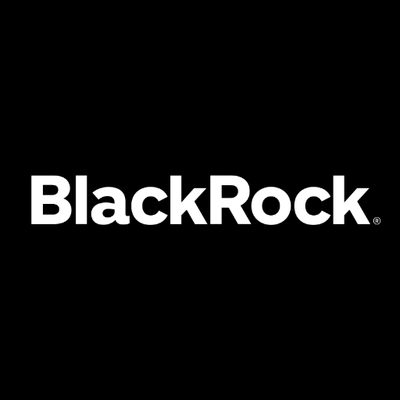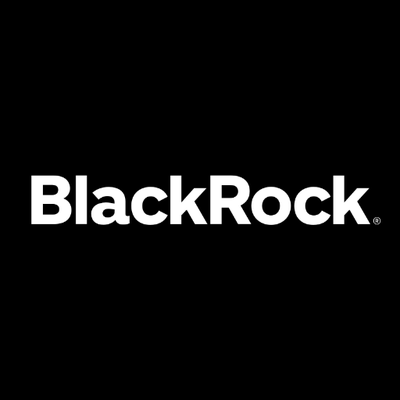Blackrock Greater Europe Investment Trust plc (LON:BRGE) has announced its portfolio update.
All information is at 30 November 2020 and unaudited.
To discover more about the BlackRock Greater Europe Investment Trust click here.
Performance at month end with net income reinvested
| One Month | Three Months | One Year | Three Years | Launch (20 Sep 04) | |
| Net asset value (undiluted) | 11.5% | 10.8% | 24.3% | 55.4% | 578.8% |
| Net asset value* (diluted) | 11.1% | 10.4% | 23.8% | 54.9% | 576.6% |
| Share price | 14.7% | 12.5% | 27.7% | 54.7% | 575.2% |
| FTSE World Europe ex UK | 13.6% | 7.5% | 7.3% | 16.4% | 298.9% |
* Diluted for treasury shares and subscription shares.
Sources: BlackRock and Datastream
At month end
| Net asset value (capital only): | 505.49p |
| Net asset value (including income): | 506.06p |
| Net asset value (capital only)1: | 503.72p |
| Net asset value (including income)1: | 504.16p |
| Share price: | 498.00p |
| Discount to NAV (including income): | 1.6% |
| Discount to NAV (including income)1: | 1.6% |
| Net gearing: | 9.2% |
| Net yield2: | 1.2% |
| Total assets (including income): | 426.7m |
| Ordinary shares in issue3: | 84,323,101 |
| Ongoing charges4: | 1.0% |
1 Diluted for treasury shares.
2 Based on an interim dividend of 1.75p per share and a final dividend of 4.40p per share for the year ended 31 August 2020.
3 Excluding 26,005,837 shares held in treasury.
4 Calculated as a percentage of average net assets and using expenses, excluding interest costs, after relief for taxation, for the year ended 31 August 2020.
| Sector Analysis | Total Assets (%) | Country Analysis | Total Assets (%) |
| Technology | 24.9 | Denmark | 18 |
| Industrials | 21 | Switzerland | 14 |
| Health Care | 16.8 | France | 14 |
| Consumer Goods | 10.6 | Netherlands | 13.5 |
| Financials | 9.7 | Germany | 7.1 |
| Consumer Services | 9.7 | Italy | 5.7 |
| Basic Materials | 3.9 | Sweden | 5.4 |
| Oil & Gas | 3.8 | Russia | 5.2 |
| Net Current Liabilities | -0.4 | United Kingdom | 3.5 |
| —– | Spain | 3.4 | |
| 100 | Poland | 2.9 | |
| ===== | Finland | 2.5 | |
| Ireland | 2 | ||
| Belgium | 1.8 | ||
| Israel | 1.1 | ||
| Greece | 0.3 | ||
| Net Current Liabilities | -0.4 | ||
| —– | |||
| 100 | |||
| ===== |
| Top 10 holdings | Country | Fund % |
| ASML | Netherlands | 6.2 |
| Sika | Switzerland | 5.5 |
| Kering | France | 5.4 |
| Lonza Group | Switzerland | 4.6 |
| Novo Nordisk | Denmark | 4.6 |
| Royal Unibrew | Denmark | 4.4 |
| DSV | Denmark | 3.9 |
| Safran | France | 3.8 |
| RELX | United Kingdom | 3.4 |
| Hexagon | Sweden | 3.3 |
Commenting on the markets, Stefan Gries, representing the Investment Manager noted:
During the month, the Company’s NAV rose by 11.5% and the share price by 14.7%. For reference, the FTSE World Europe ex UK Index returned 13.6% during the period.
Europe ex UK markets rose significantly during the month. The strong performance was driven primarily by positive vaccine news from Pfizer, Moderna and AstraZeneca. While the market had been anticipating positive vaccine updates, participants were surprised by the strength of the data. This resulted in extreme moves, characterised by a sharp rotation away from higher quality growth into lower quality cyclical assets.
The November market rally was mainly led by sectors that had suffered so far this year, such as oil & gas and financials. While some of the year-to-date winners sold off during the recovery rally, the Company enjoyed strong performance from a number of our Emerging European companies that tend to trade on extremely cheap valuations.
Overall, the Company slightly underperformed the reference index during the month of November. In sector terms, the Company benefited from its lower allocation to consumer goods and telecommunications, as well as an overweight allocation to technology. Our small overweight to the oil & gas sector, with exposure to mainly Emerging European companies, aided returns as the sector rallied 30%. The Company’s lower exposure to financials detracted, as did a higher allocation to health care.
During November, we saw extreme moves in individual stocks, with companies that had been hit hard by COVID-19 all up dramatically as their prospects significantly improved with the announcement that a vaccine is imminent. In particular, travel related stocks, such as aerospace stocks Safran and travel IT platform Amadeus, were amongst the largest contributors to returns. News of a highly efficacious vaccine means air travel is likely to normalise faster than currently expected by the market.
The European banks sector also saw strong performance after having struggled all year. Our positions in KBC, Sberbank and Bank Polska all contributed positively to performance. However, the overall underweight to the sector detracted.
Elsewhere, the Company’s position in Neste OYJ contributed positively to returns. Shares in Neste were lifted by the strength of the energy sector during the month. Furthermore, given Neste supplies renewable fuels for road transportation, a more positive outlook on economic activity was helpful. Within the same sector, Russian Lukoil performed strongly, benefiting from the rising oil price. Not owning large defensive benchmark constituents like Nestlé, Roche and Unilever was also positive.
On the flip side, stocks that had either been unaffected by the COVID crisis or benefited from it, lagged the market rally. Positions in DSV, Sika, Lonza and Royal Unibrew which had performed strongly on a year-to-date basis, were amongst the largest detractors due to profit taking in November. However, we would highlight that while these stocks did not participate in the market rally, they will also benefit from a vaccine given their exposure to global trade and construction, which is likely to pick up with economies normalizing once a vaccine is in place. Negative contributions also came from a few stocks that were not held in the portfolio, such as oil major Total or financials like Allianz and BNP.
At the end of the period, the Company had a higher allocation than the reference index towards technology, consumer services, industrials and health care. The Company had a neutral weighting towards oil & gas and underweight allocations to consumer goods, financials, utilities, basic materials and telecoms.
Outlook
Over recent years, many investors have avoided exposure to European equities owing to concerns around political risk, rising populism and a challenged financial system. We have long been of the view that one needs to take an active approach to investing in European equities. With this in mind, we felt that for active stock pickers, Europe can offer shareholders access to some highly attractive companies listed in the region. The response to the fallout from COVID-19 has the potential to change the more negative perception on the asset class as a whole.
The proposed €750 billion European Union Recovery Fund is a significant step of solidarity for the bloc and one that can potentially bring greater fiscal coordination. In this context, both the economy and local stock markets appear well-positioned to make up lost ground, potentially transforming European equities into a standout opportunity in the developed world, while notably providing further subsidies for growth in Emerging Europe.
21 December 2020
To discover more about the BlackRock Greater Europe Investment Trust click here.






































